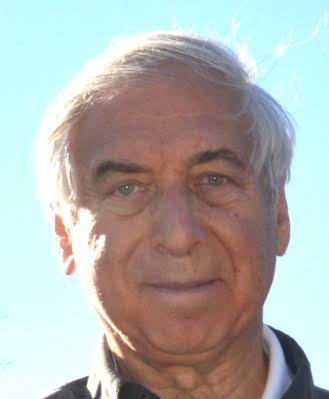Candidate Statement: Jay Pasachoff
Nominated Office: Councilor
Affiliation: Williams College
Position/title: Field Memorial Professor of Astronomy and Director, Hopkins Observatory
Secondary Affiliation/Position: Caltech, Visitor in Planetary Science
PhD institution: Harvard University (1969)
Areas of scientific interest:
- Sun (corona at eclipses; chromosphere from observatories; chromosphere and corona from spacecraft)
- solar system (occultation observations of Pluto and other objects in the outer solar system)
- radio observations of cosmic deuterium
- history of astronomy
AAS positions:
- Chair, Historical Astronomy Division (2013-2015)
- Chair, Doggett Prize Committee (2015-2017)
- Education Prize (2003)
- Eclipse 2017 Task Force (2015-present)
- AAS Agent (2013-present)
- Astronomy Education Advisory Board (1990-1997)
- Co-organizer, 40+E (2012-present)
- Representative of the AAS to the AAAS (2004-present)
Other relevant positions and experience:
IAU Offices
- President, Commission 46 on Education and Development (2003-06)
- U.S. National Liaison to Commission 46, 1979-2015; now C.C1 (2015-present)
- Chair, Working Group on Solar Eclipses (1985-present)
- Johannes Kepler Working Group of the History of Astronomy Commission (2009-present)
- Organizing Committee, History of Astronomy Commission C.C3 (2015-2018)
- Chair, Program Group on Public Education on the Occasions of Eclipses and Transits (2009-2015)
- Representative of the AAS to the AAAS (2004-present)
Other relevant items
- 2012 Prix-Jules-Janssen of the Société Astronomique de France
- Fellow, Committee for Skeptical Inquiry (2010-present)
- Terzian Lecturer, Cornell University (2013)
- Getty Fellow for a book on comets in art (1994-5)
- Optical observations from a variety of telescopes on Mauna Kea and elsewhere
- Radio observations from a variety of telescopes in the US, Australia, and elsewhere
- Space observations relevant to solar, planetary, and cosmological projects with solar satellites and with Hubble
- Chair, AAAS Astronomy Division (1987-88 and 1997-98)
- NASA Astrophysics Council (1990-1992)
- Member, Institute for Advanced Study (1989-90)
- Honorary Membership: Royal Astronomical Society of Canada (2003-present)
- Council of Advisors, Astronomy Education Review (2002-2012)
- grantee from NSF, NASA, National Geographic
- Fellow, APS
- Fellow, AAAS
- Fellow, RAS
- Fellow, Intl. Planetarium Soc.
Candidate Statement:
I have attended essentially all AAS fall and spring meetings since not long after I began graduate school in 1963, plus the 1960-61 pair in New York City and Nantucket before that as an undergraduate, so I have grown up scientifically and intellectually with the AAS and its activities. It would be an honor to be, as a Councilor, in the room the days before the meetings where the directions of AAS activities are discussed and determined. I have also long attended the Solar Physics Division meetings and, more recently because of my occultation studies that branched off eclipse equipment, at the Division of Planetary Sciences meetings, recently organizing History of Astronomy sessions at them.
My attendance at meetings and my preparation of my textbooks in astronomy have given me an appreciation of the wide range of astronomical research, and I hope to be able to be a representative of researchers across the spectrum--both the electromagnetic spectrum and the spectrum of subjects. Further, I am familiar with how astronomy is carried out at graduate/postdoc-heavy institutions and at liberal-arts colleges, so I hope, too, to be able to be a fair representative of and evaluator of the needs and desires of a wide range of AAS members. I keep in touch with our alumni and alumnae, who now are widely ranging in age and experience, about their careers and career decisions.
In addition, I have devoted a good portion of my career not only to research but also to education and to public outreach. The forthcoming total solar eclipse of August 21, 2017, whose 60-mile-wide band of totality will stretch from Pacific to Atlantic and whose partial phases will be visible throughout North America and beyond, will be an especially interesting opportunity for AAS leadership in explaining why it is interesting and inspiring for students and for the general public to see the eclipse and in providing accurate safety information to head off common misconceptions about eclipses, as well as helping and coordinating scientific expeditions from around the world who will be observing from our country.
At Williams College, we have been able to graduate a diverse set including alumni and alumnae from underrepresented populations and I also look forward to working within the AAS and beyond to continue to broaden the appeal of astronomy and the education of potential astronomers.


